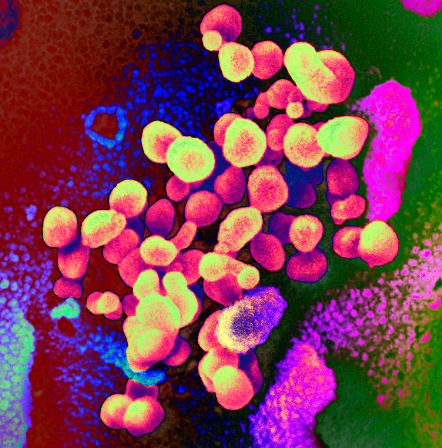Long COVID ideas evolve
 Scientists are questioning whether long COVID stems from a long infection.
Scientists are questioning whether long COVID stems from a long infection.
According to a recent commentary in the Medical Journal of Australia, a “powerful body of evidence” is emerging that indicates the persistence of the virus in various tissues, and its potential role in the symptoms of long COVID.
Dr Michelle Scoullar, a paediatrician and senior research fellow at the Burnet Institute, says studies have detected viral traces in tissues such as the gastrointestinal tract, blood, and nervous system long after initial infection.
The findings raise critical questions: “Does this happen in everyone with long COVID, what determines if the virus lingers or not, and whether it continues to be active?” she asked.
Long COVID symptoms - ranging from chronic inflammation and cognitive difficulties to cardiovascular issues - continue to affect millions globally.
In Australia, the persistence of these symptoms raises concerns about the strain on public health systems and economic productivity.
Research, including studies involving large-scale community surveillance, has highlighted the delayed clearance of the virus from the respiratory system in some individuals.
One study, tracking over 90,000 participants, found detectable viral RNA for one to six months post-infection in certain cases.
Other research has linked the presence of viral antigens in the blood to severe acute infections and longer-lasting symptoms.
Further investigation has demonstrated that these viral remnants can trigger sustained inflammation, which may explain some of the cognitive and physical impairments linked to long COVID.
For example, one study reported that individuals with long COVID experienced a measurable drop in IQ due to disruptions in brain function caused by inflammation.
The researchers argue for greater exploration of antiviral therapies, including existing medications like metformin and expanded vaccination campaigns, particularly targeting younger populations and individuals with mild infections.
“By prioritising prevention, advancing treatments, and improving access to vaccines, we can take significant steps toward addressing the global challenge of long COVID,” Dr Scoullar said.
Public health measures, such as improving indoor air quality, are also deemed crucial for mitigating the risks associated with viral transmission and long-term complications.
The Burnet Institute researchers believe that recognising long COVID as a possible consequence of viral persistence could “demystify the experiences of those living with long COVID” and aid in the development of targeted therapies.








 Print
Print